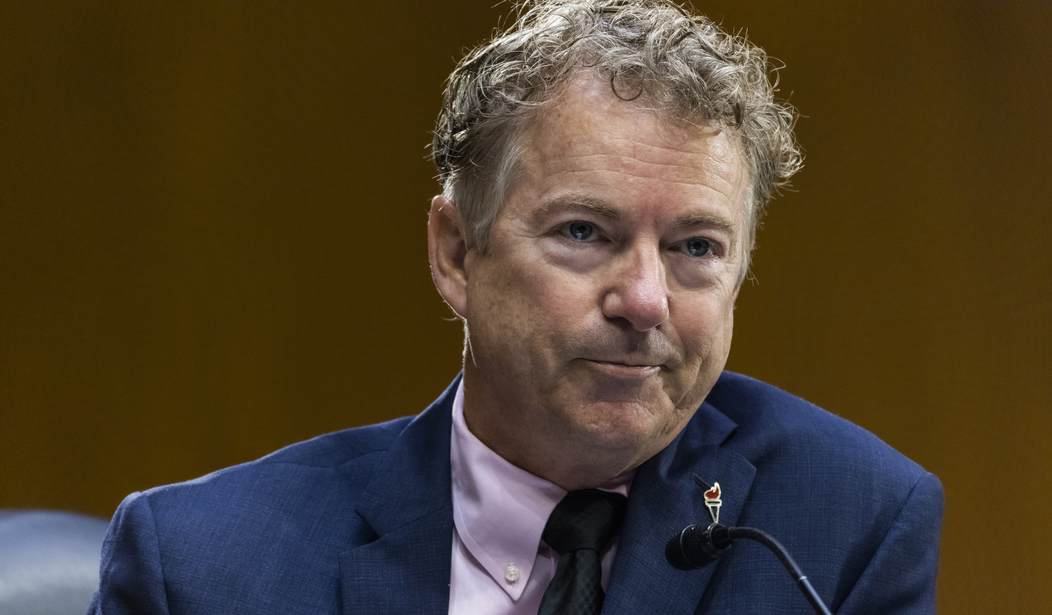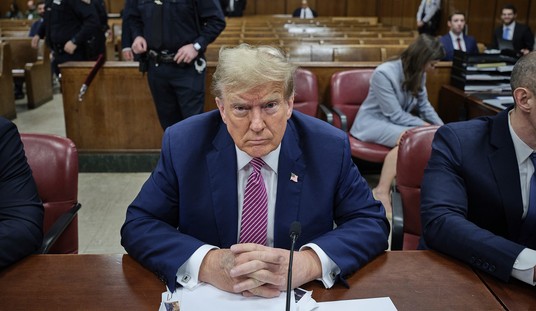The preliminary results of a study available "preprint," meaning not yet peer-reviewed, were recently published, on the "Necessity of COVID-19 vaccination in previously infected individuals." The first person one might think would weigh in is Sen. Rand Paul (R-KY). The senator, a medical doctor who was previously infected, has spoken at length about the natural protections in those previously infected.
This information frees up millions of doses of vaccines for those not yet infected in places with vaccine shortages like India.https://t.co/V5EOqZ1CPm
— Senator Rand Paul (@RandPaul) June 8, 2021
Thus, recovered COVID-19 patients are likely to better defend against the variants than persons who have not been infected but have been immunized with spike-containing vaccines only.https://t.co/FRCbFYKaBQ
— Senator Rand Paul (@RandPaul) June 8, 2021
Sen. Paul also discussed the study in media appearances.
ICYMI I joined @marthamaccallum on @FoxNews earlier to talk about COVID-19 immunity. https://t.co/y9xxhzqr96
— Senator Rand Paul (@RandPaul) June 9, 2021
As Fox News host Martha MacCallum introduced Sen. Paul on Wednesday's "The Story," she quoted from the study's conclusion that "Individuals who have had SARS-CoV-2 infection are unlikely to benefit from COVID-19 vaccination, and vaccines can be safely prioritized to those who have not been infected before."
The senator offered that the study has "significant public policy ramifications." MacCallum asked about the study once more later in the segment, specifically guidance that people previously infected get the vaccine, even if they do have natural protections.
"This is the problem we have," Sen. Paul lamented. "Nobody is really willing to be an independent thinker on this," going on to offer a scenario of a 12-year-old child who had been previously infected being required to get vaccinated in order to go to school. "You're thinking, 'well does he really need to be.' And then they send you a report out, well there are some myocarditis, inflammation of the heart you can get from being vaccinated with children, but you should just go ahead and take it and you're like 'well do I really need to take it? Can't we look at some science?'"
Recommended
This is actually what the senator called his "biggest objection with Fauci. Paul went on to say Fauci is "all over TV complaining we're not obeying the science. He's not paying attention to the science."
Sen. Paul then expanded about "the science" which "has been out there for a long time. The immunity is good from natural infection, vaccine likely won't hurt you, but the thing is we should treat it seriously, because this is how we got to herd immunity. We're at herd immunity in our country because of a combination of vaccines and at least 100 million people that got the disease naturally."
During the segment, the senator also spoke of India, which is seeing a surge in covid cases. He offered India as an example where "they can't keep up with the demand so they don't have enough vaccines." Sen. Paul noted that to "prioritize the vaccine" for people who haven't gotten covid could mean "sav[ing] probably hundreds of thousands of lives in India right now today."
In addition to highlighting the need for vaccine prioritization, Paul cited the foreign country as an example of where Fauci's bad advice has also reached, when it comes to this "one size fits all," where people don't want to think more about it. "But in not thinking about it, people will die because they're not prioritizing the vaccine," the senator warned.
This has affected Americans and the vaccine supply here as well, according to Paul. "Inevitably there were lives lost in our country because there were some delay in getting it. Not much fortunately. But there was some delay getting to it the appropriate people because we were vaccinating people who had already had the disease and studies are showing it's not necessary if to be vaccinated if you had the disease, particularly in a low risk category."
Sen. Paul is not the only one to speak of the importance of prioritizing the vaccine.
Dr. Sanchari Sinha Dutta, Ph.D, who wrote an analysis for Medical News on that study in question, emphasized throughout her entire piece that prioritization is the name of the game.
As her "Study Significance" read:
The scarcity of vaccines, coupled with the knowledge that vaccines do not provide additional protection to those who have already been infected, is the strongest argument for restricting vaccine administration to those who have not had the infection.
In addition to the profession, age, and comorbid conditions, previous infection should be an important consideration in deciding whom to prioritize to receive the vaccine.
A practical and useful message would be to consider symptomatic COVID-19 to be as good as having received a vaccine, and that people who have had COVID-19 confirmed by a reliable laboratory test do not need the vaccine.
...
In contrast, individuals without prior SARS-CoV-2 infection can get the maximum benefits from vaccination. Thus, based on the study findings, COVID-19 vaccines should be prioritized to naïve individuals without a history of SARS-CoV-2 infection.
Certain excerpts of the "Important observations" section read:
The analysis of cumulative COVID-19 incidence revealed that during the course of the study, SARS-CoV-2 infection occurred almost exclusively in participants who were not previously infected and were not vaccinated.
...
Importantly, not a single incidence of SARS-CoV-2 infection was observed in previously infected participants with or without vaccination.
With further statistical analysis, it was observed that the COVID-19 vaccination significantly reduced the risk of SARS-CoV-2 infection in previously uninfected participants but not in previously infected participants.
Although the study did not directly estimate the duration of protection from natural infection, it was observed that previously infected participants remained protected against COVID-19 for at least 10 months after the symptom onset or a positive test result.
Dr. Dutta also noted that "the most vulnerable population should be prioritized for the vaccination" when mentioning "fair access to vaccines throughout the world" and as a matter of "get[ting] the maximum vaccine benefits."

























Join the conversation as a VIP Member